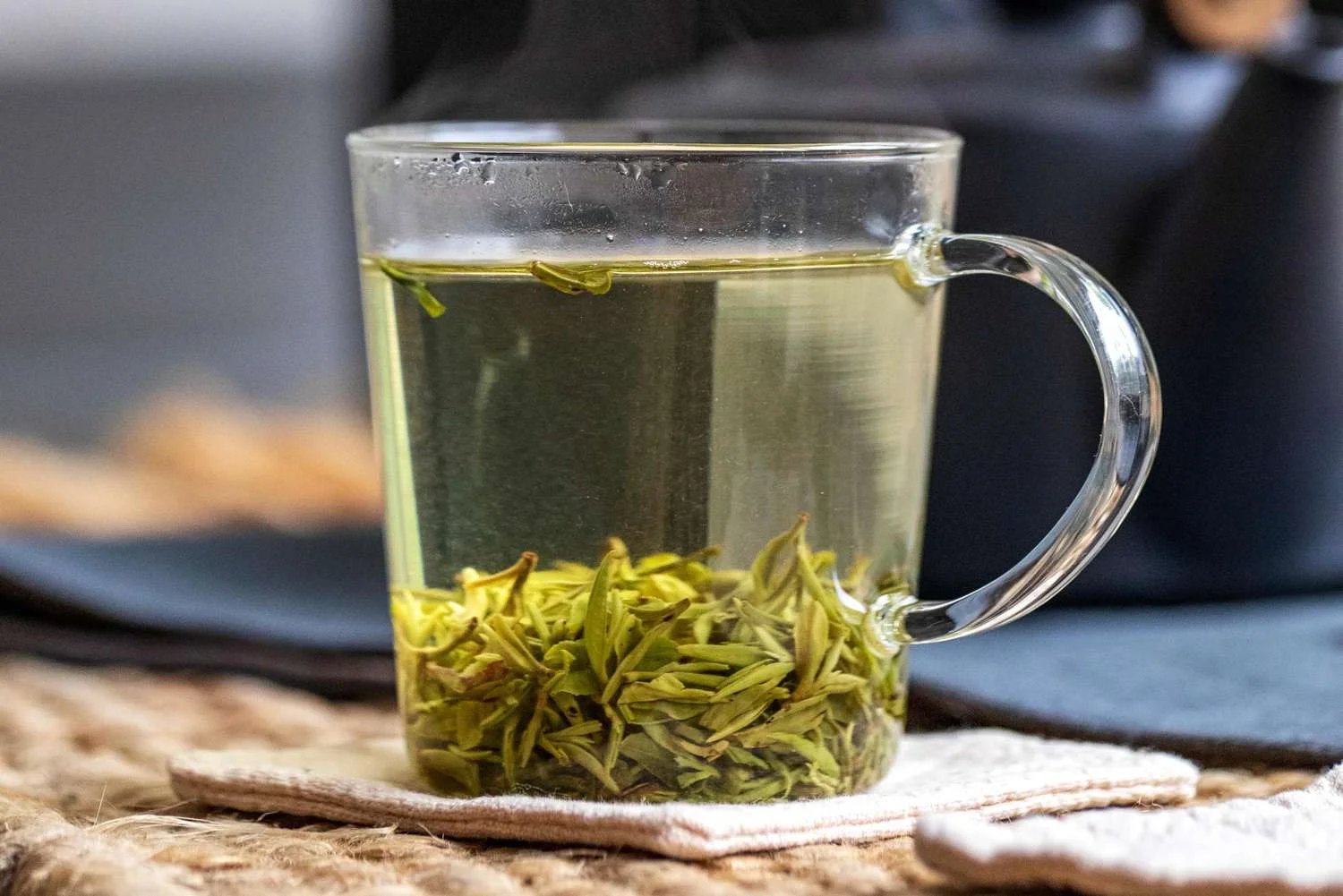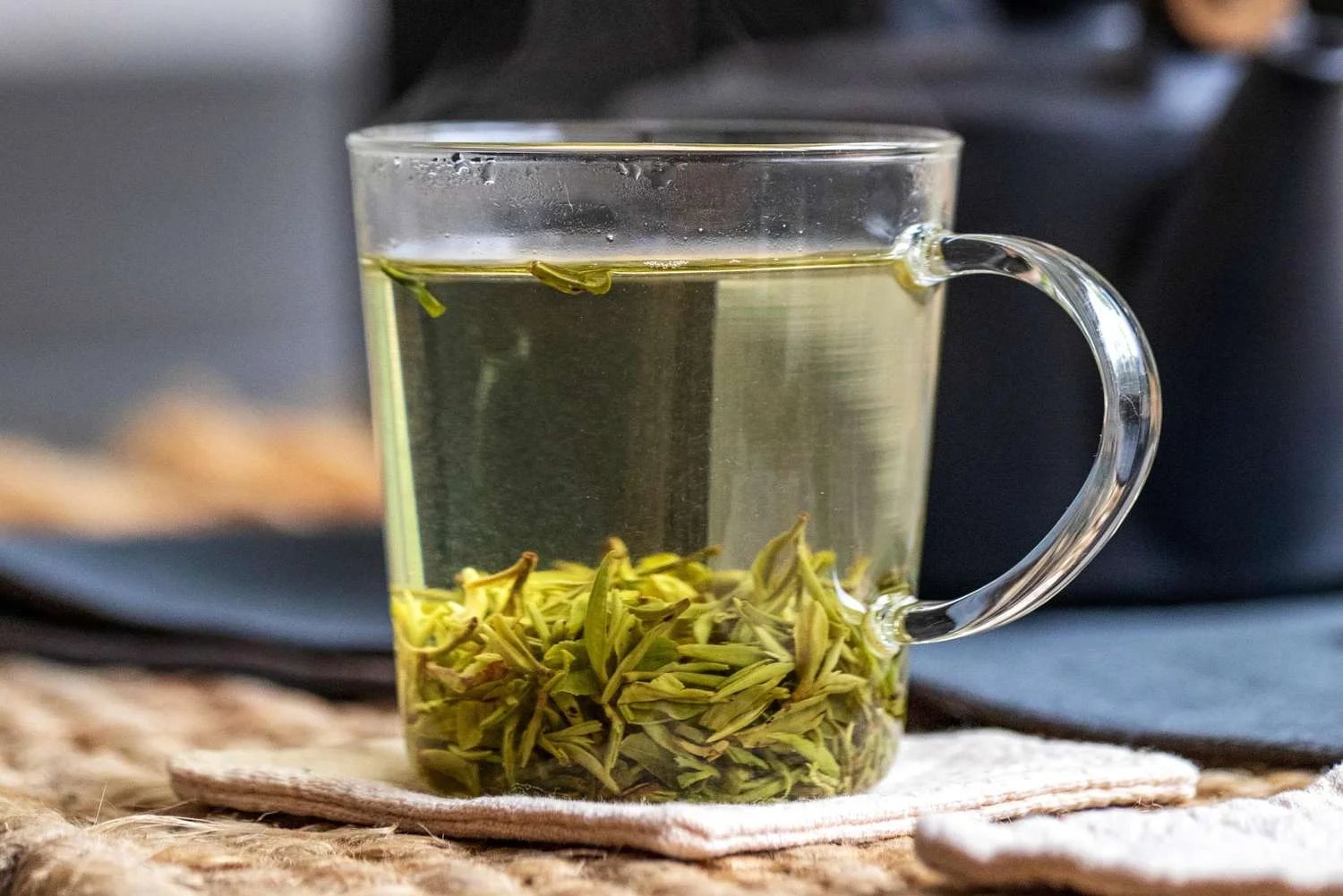
- Long-term green tea consumption supports both physical and mental health by reducing inflammation, improving sleep, and regulating mood-related brain chemicals.
- Compounds like EGCG, L-theanine, and polyphenols protect brain cells, enhance focus, and promote calmness by neutralizing free radicals and supporting neurotransmitter balance.
- Drinking at least two cups of green tea daily over many years offers the greatest benefits, with research linking it to lower depression risk, better brain function, and improved longevity.
Green tea has long basked in the wellness spotlight thanks to a reputation for reducing inflammation in the body and, in turn, supporting overall health. It turns out that might not be the drink’s only notable benefit: research published in Frontiers in Public Health recently found the anti-inflammatory effects of green tea also positively influenced mental health.
The study suggests that long-term green tea consumption helps lower body mass index and boost testosterone levels in middle-aged and older men, while also decreasing their risk of depression by reducing inflammation and enhancing sleep quality. Women also benefit from the advantages, as additional research has found that regular green tea intake reduces their risk of depression by decreasing inflammation and increasing estradiol (the most abundant form of estrogen).
At first thought, you may only associate chronic inflammation with muscle pain and achy joints, but these studies suggest that it also impacts the brain, says Christina IsMD, a board-certified psychiatrist and interventional psychiatry medical director with Mindpath Health. “Inflammation disrupts how brain cells communicate and lowers levels of ‘well-being’ brain chemicals,” Ni says. “By calming the body’s inflammatory response, green tea helps brain circuits run smoothly, which restores a healthier baseline for both physical and mental well-being.”
In other words, you can’t separate the impact that inflammation has on mental and physical health, says Angelo FalconeMD, an integrative medicine physician and founder of Dignity Integrative Health and Wellness.
“We’re finally understanding that the brain isn’t floating in isolation, because when the body is inflamed, it’s like having a low-grade fire burning throughout your system,” Falcone explains. “When that smoke gets to the brain, the inflammation disrupts neurotransmitter production, damages brain cells, and interferes with the brain regions that regulate mood.”
So where (and how) does green tea come into play? Here’s what experts want you to know about the beloved beverage.
How does long-term consumption of green tea support mental health?
“Green tea works through what I call the ‘inflammation-sleep highway,’ because it’s not just one thing that supports mental health — it’s a cascade effect,” Falcone says. Green tea not only reduces systemic inflammation in the body, a known driver of depressionbut also improves sleep quality, leading to better mood regulationFalcone explains. “It’s like fixing the engine and the transmission of a car — you need both working properly to run smoothly.”
Ni seconds this, explaining that green tea is like a daily tune-up for your brain. “With regular consumption, green tea can lower stress and depressive symptoms, smooth out mood swings, and even protect brain cells from wear and tear,” she says. How? By decreasing inflammation, balancing out brain chemicals like serotonin and dopamine that promote calmness and well-being, lowering stress hormones, and protecting neurons from damage and oxidative stress (an imbalance of free radicals and antioxidants that can lead to cell damage).
Additionally, the study found that green tea drinkers had larger brain volumes and higher testosterone levels — two factors associated with improved mood, energy, and resilience against depression as you age, Ni says.
As for the exact mechanisms at play, here’s a breakdown of green tea’s valuable compounds.
Epigallocatechin gallate
“Epigallocatechin gallate (EGCG) is a powerful anti-inflammatory compound that essentially turns down the volume on your body’s inflammatory response,” Falcone says. This is because the antioxidant properties of EGCG neutralize free radicals (unstable molecules that cause damage to cells and tissues) responsible for cellular damage, ultimately decreasing inflammation and supporting brain health.
L-theanine
L-theanine is an amino acid that is highly concentrated in green tea and crosses the blood-brain barrier to promote alpha wave activity in the brain, essentially creating a state of relaxed alertness, according to Falcone. The compound also stimulates the production of neurotransmitters such as GABA, dopamine, and serotonin, which regulate mood, attention, and stress responses, Ni adds.
Polyphenols
Green tea contains polyphenols, which act as the “cleanup crew for oxidative stress in the brain,” Falcone says. specifically, polyphenols reduce DNA and cellular damage in the brain by neutralizing free radicals. The powerful compounds also exhibit neuroprotective effectshelping to prevent neuronal cell damage that can lead to mood swings, memory loss, fatigue, and difficulty concentrating.
How can you reap the benefits of green tea?
According to the study, participants who drank at least 500 milliliters — about two standard eight-ounce cups — of green tea daily for a minimum of 20 years experienced the greatest benefits. That may seem like a lot, but that’s the point: The advantages come from consistency — much like exercise. “Think of it as a marathon, not a sprint, because the magic seems to happen when drinking green tea becomes as routine as brushing your teeth,” Falcone says.
As for timing, Ni recommends sipping green tea in the morning or early afternoon. “The gentle caffeine in green tea can provide a lift in focus and mood, while the L-theanine can help even out the ‘jitters’ linked with coffee.” Just avoid green tea close to bedtime, since consuming caffeine too late can interfere with sleep, she advises.
Curious about decaf options? “Decaffeinated green tea is still a health win; it’s just a gentler, calmer version of the original,” Ni says. In fact, decaf green tea retains most of the polyphenols that make it so healthy, and the L-theanine content remains the same, she explains. The only real difference is that you lose a smidge of antioxidant strength and the energizing boost from caffeine.
In moderate amounts, green tea is generally safe for most people, although Ni says that high intake may cause stomach upset or insomnia due to the caffeine. Individuals sensitive to caffeine, pregnant women, and those with liver disease, iron deficiency, or who are taking blood thinners should also consult a doctor before consuming large amounts, as it may interfere with medication and/or iron absorption, she adds.
What are the additional health benefits of green tea?
Aside from improving mental health and emotional resilience, green tea is associated with reduced risks of heart disease and type 2 diabetesas well as improved metabolism and modest weight management, Ni says. Research also indicates that green tea could be linked to a lower risk of cancer due to its antioxidant and anti-inflammatory properties.
Furthermore, research found that green tea may boost longevity and improve brain health by reducing age-related cognitive declinesuch as dementia and Alzheimer’s disease. Is there anything a daily cup of green tea can’t do?
Reviewed by
Lauren Modern Lauren MS, RDN, LD, CLEC: Lauren is an award-winning registered dietitian and three-time book author, with more than 22 years in the field.
Disclaimer: This news article has been republished exactly as it appeared on its original source, without any modification.
We do not take any responsibility for its content, which remains solely the responsibility of the original publisher.
Author: Andi Breitowich
Published on: 2025-10-23 13:01:00
Source: www.foodandwine.com
Disclaimer: This news article has been republished exactly as it appeared on its original source, without any modification.
We do not take any responsibility for its content, which remains solely the responsibility of the original publisher.
Author: uaetodaynews
Published on: 2025-10-28 03:07:00
Source: uaetodaynews.com
